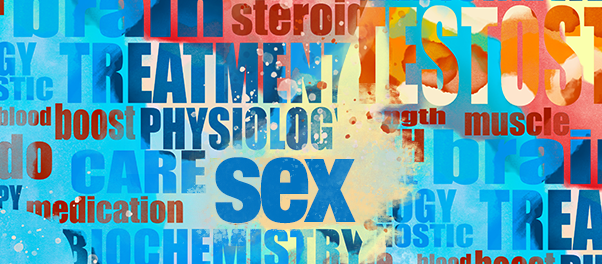Featured Article
Article Title
The Impact of Masculine Ideologies on Heterosexual Men’s Experiences of Intimate Partner Violence: A Qualitative Exploration
Authors
Kevin F. Hogan - Department of Counseling and Psychotherapy, Newman University, Birmingham, UK
Victoria Clarke - Department of Health and Social Sciences, University of the West of England University, Bristol, UK
Tony Ward - Department of Health and Social Sciences, University of the West of England University, Bristol, UK
Abstract
The subject of female-perpetrated intimate partner violence (IPV) against men remains poorly understood and in need of further research. Exploration of societal expectations surrounding masculinity and male victimization may enhance understanding of how men experience IPV victimization. Consequently, this experiential research study explored the impact of masculine ideologies on the way in which 26 men made sense of their experiences of female-perpetrated intimate partner violence (IPV). Semi-structured interviews explored the men’s sense of themselves, their relationship, and their use of support networks. The data were analyzed using reflexive thematic analysis. The importance of maintaining an appropriate sense of masculinity underpinned the men’s narratives. Participants described feeling shame and embarrassment for not having met dominant cultural expectations surrounding the roles of men in heterosexual relationships. Many of the participants struggled to accept the role of “victim,” which was perceived as de-masculinizing. These findings offer implications for understanding men’s IPV experiences and developing enhanced support sources.
Keywords
Abused men; domestic violence; heterosexual relationships; male victimization; masculinity; masculine stereotypes
Summary of Research
This study focuses on the interaction of masculinity, social norms, and stereotypes in the context of male victims of intimate partner violence (IPV). The study aims to understand how masculinity influences men's experiences of IPV victimization and their help-seeking behavior. The findings highlight the complex relationship between societal expectations of masculinity, male victimization, and the barriers men face in seeking help.
Prior research has shown that ideas about what it means to be a man can affect how men perceive and respond to intimate partner violence (IPV). Men often feel pressure to conform to traditional notions of masculinity, which can make it difficult for them to recognize themselves as victims of IPV and seek help. Despite growing awareness of male IPV victimization, many men hesitate to seek support due to concerns about their masculinity. This experiential research involved 26 male participants, exploring the impact of masculine ideologies on their understanding of IPV experiences through semi-structured interviews. The analysis was conducted using reflexive thematic analysis and uncovered several key findings.
First, they discussed how societal expectations of masculinity influence men's perceptions of themselves and their experiences in abusive relationships. They found that men often felt shame and embarrassment for not meeting dominant cultural expectations of male roles within heterosexual relationships, such as maintaining authority. This shame stemmed from a perceived failure to adhere to hegemonic masculinity, which prioritized power, authority, and competence.
Additionally, the study found several barriers to help-seeking behavior among male victims of IPV, including societal perceptions of masculinity and fear of being emasculated by seeking help. Many men shared that they struggle to accept the role of victim due to societal stigmas, which prevents them from seeking support. Furthermore, friends and family might not acknowledge or validate male victims' experiences, adding to their reluctance to seek assistance.
Furthermore, the study explored how masculine norms influence men's views on violence. Some men may perceive violence between men as normal masculine behavior, yet they often have ethical concerns about using physical force against women, aligning with societal views on violence. Additionally, men may feel conflicted when their partners' use of violence goes against traditional gender stereotypes.
The study emphasizes the importance of tailoring support services to address the specific needs and barriers faced by male victims of IPV. Providing anonymity and alternative methods of communication, such as telephone interviews, can help reduce feelings of shame and embarrassment. Support services should also be sensitive to the intersectionality of masculinity with other factors, such as ethnicity and gender identity.
Translating Research into Practice
Understanding the Complexity of Male IPV Victimization: Research underscores the multifaceted nature of male intimate partner violence (IPV) victimization, emphasizing the inclusion of psychological and emotional aspects alongside physical abuse. Societal expectations of masculinity can hinder male victims from recognizing their victimization, resulting in feelings of shame and embarrassment. Clinicians must be sensitive to the influence of masculine norms, addressing the barriers men face in seeking help and encouraging them to overcome societal stigmas associated with victimization. Clinicians should adopt a holistic approach to understanding male IPV victimization, acknowledging the psychological and emotional toll alongside physical harm.
Addressing Barriers to Help-Seeking: Support services must recognize and address the barriers that prevent male victims from seeking help, including fear of emasculation, lack of recognition from friends and family, and societal stigmas surrounding male victimization. Providing safe and confidential spaces for men to discuss their experiences without fear of judgment or ridicule is essential in overcoming these barriers.
Tailoring Support Services: Support services should be tailored to meet the specific needs and challenges faced by male IPV victims. This may involve providing alternative methods of communication, such as telephone interviews, to reduce feelings of shame and embarrassment and offering culturally sensitive and gender-inclusive support.
Challenging Societal Norms: By understanding the role of masculinity in shaping men's experiences of IPV and help-seeking behavior, support services can actively challenge societal norms that perpetuate gender-based violence. This may involve advocating for changes in societal attitudes towards masculinity and promoting healthier forms of masculinity that prioritize empathy, respect, and non-violence.
Other Interesting Tidbits for Researchers and Clinicians
“Masculinity was a pervasive theme within many of the men’s narratives. Given that this was so strongly linked to wider social norms surrounding masculine norms and expectations, this finding may have relevance and possible transferability to other male victims of IPV. In light of evidence which suggests that masculine identity varies within and between transgendered persons, future research should aim to recruit trans men in order to further explore the role of masculinity within the accounts of male victims and further develop interventions to support transgendered victims of IPV” (p. 136).





























